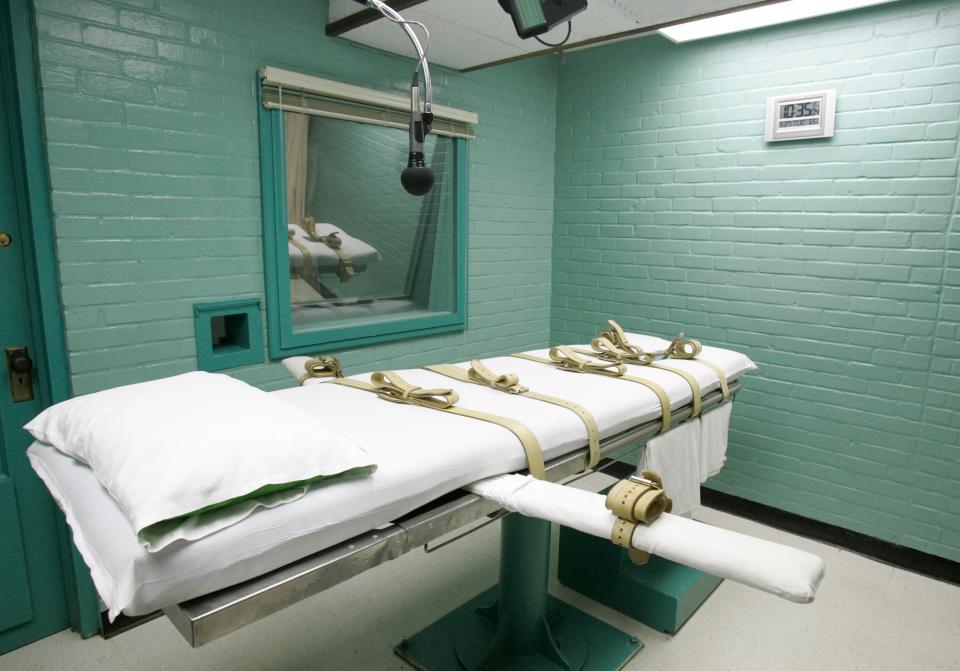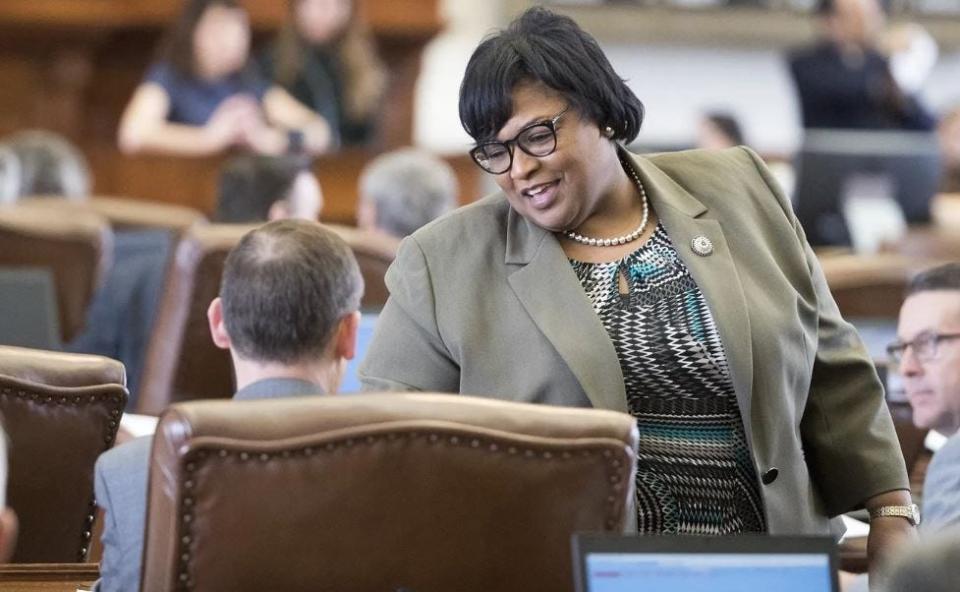Texas House says no to executing killers with 'severe mental illness'
AUSTIN — The Texas House has preliminarily approved a measure that would make someone who committed capital murder while suffering "severe mental illness" ineligible for the death penalty, even though one member warned that many potential mass shooters might be wrongfully spared the most severe punishment the state can deliver.
Still, the measure, House Bill 727 by Dallas Democrat Toni Rose, passed with at least 15 of the House's 82 Republicans voting in favor. One of them, Plano's Jeff Leach, was among the bill's five coauthors.

Rose, in fending off questions from Royse City Republican Bryan Slaton suggesting some killers, including mass murderers, might be able to fake a mental illness, said people covered by her bill would be held accountable.
"They will receive life imprisonment without the possibility of parole," Rose said. "Again, a person would still be punished; that person just would not be sentenced to death."

According to the text of the bill, which still requires one more House vote before being sent to the Senate for consideration, severe mental illness means "a person who has schizophrenia, a schizoaffective disorder, or a bipolar disorder and, as a result of that disorder, has active psychotic symptoms that substantially impair the person's capacity to: appreciate the nature, consequences, or wrongfulness of the person's conduct; or exercise rational judgment in relation to the person's conduct."
The bill goes on to say, "A defendant who at the time of the commission of a capital offense was a person with severe mental illness may not be sentenced to death."
The House has passed similar bans on executing people with mental illness in recent sessions, but they have never made it through the Senate.
Slaton argued that mental illness, unlike a physical illness, is determined chiefly by a mental health professional's "observations" rather than by an outward sign that someone's body is suffering from a disease.
"Mental health is going to be (based on) observations, the determination that someone is mentally ill," Slaton said. "There is not a test to give someone that's reproducible."
The courts would have to find that claims of severe mental illness are valid, under Rose's legislation.
According to the Death Penalty Information Center, a Washington-based nonprofit that opposes capital punishment, the U.S. Supreme Court has ruled that "a defendant’s mental illness makes him or her less morally (culpable) and must be taken into consideration as an important reason to spare his or her life."
However, the organization notes, the high court has not ruled that executing someone with mental illness does not violate the constitutional ban on cruel or unusual punishment as it has for people with intellectual disabilities and those who committed capital murder while under the age of 18.
According to the center's research, which it says is not exhaustive, at least 25 mentally ill death row inmates in the United States, four of them in Texas, have been put to death since 1999.
Texas leads the nation with 583 executions since the Supreme Court allowed the practice to resume in 1976. So far this year, five inmates have been put to death by lethal injection in Huntsville's execution chamber. The sixth is scheduled for April 26, barring court action or actions by the Texas Board of Pardons and Paroles or by Gov. Greg Abbott.
In an ongoing Texas death penalty case, a state district judge this month withdrew the April 5 execution date for death row inmate Andre Thomas, a Grayson County man who in 2004 admitted to stabbing to death his estranged wife, their two children and his wife's 1-year-old daughter from a separate relationship.
According to media accounts, Thomas said he was instructed by God to kill. He gouged out one of his eyes after his arrest and the second one after being condemned for killing the youngest child, where the death sentence was automatic under state law.
Thomas' next court action is scheduled for July.
Leach, who described himself as a death penalty supporter, but has spoken out against how it is administered in Texas, said cases involving severe mental illness should be off the table for the death penalty.
"We cannot, we should not — especially as pro-life conservatives — execute people who did not have the requisite 'mens rea' at the time of the offense, period," Leach in a speech in the House chamber, using the lawyerly parlance that means "knowledge of wrongdoing." "We can't do that."
John C. Moritz covers Texas government and politics for the USA Today Network in Austin. Contact him at jmoritz@gannett.com and follow him on Twitter @JohnnieMo.
This article originally appeared on Corpus Christi Caller Times: Ban on executing mentally ill inmates wins Texas House approval

